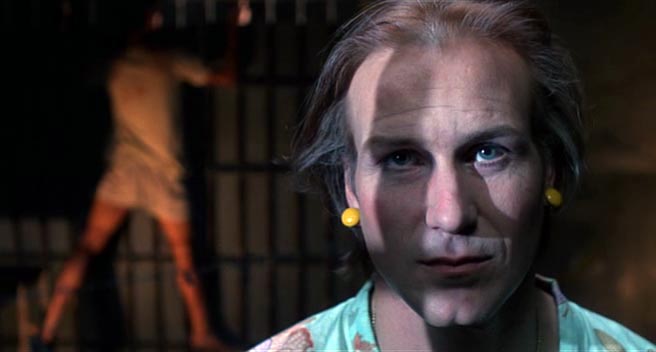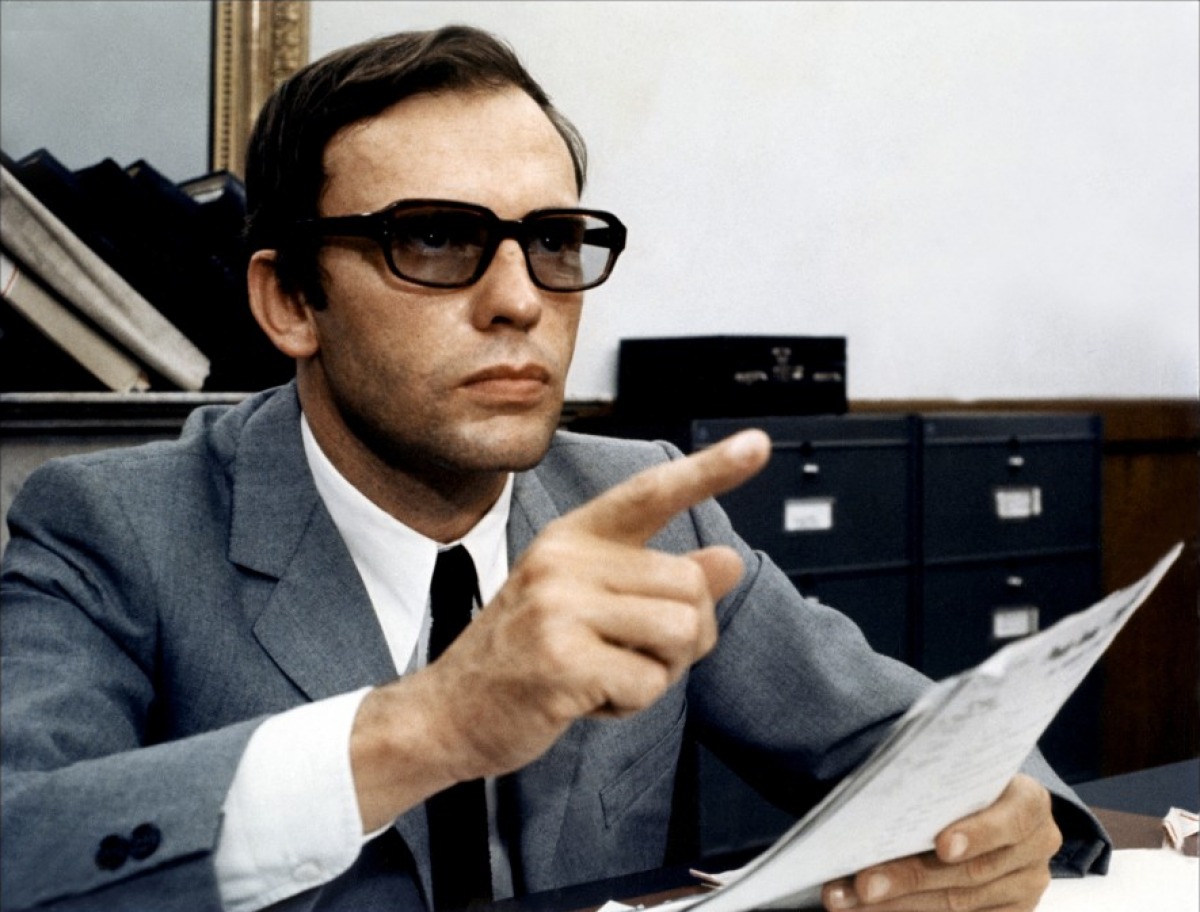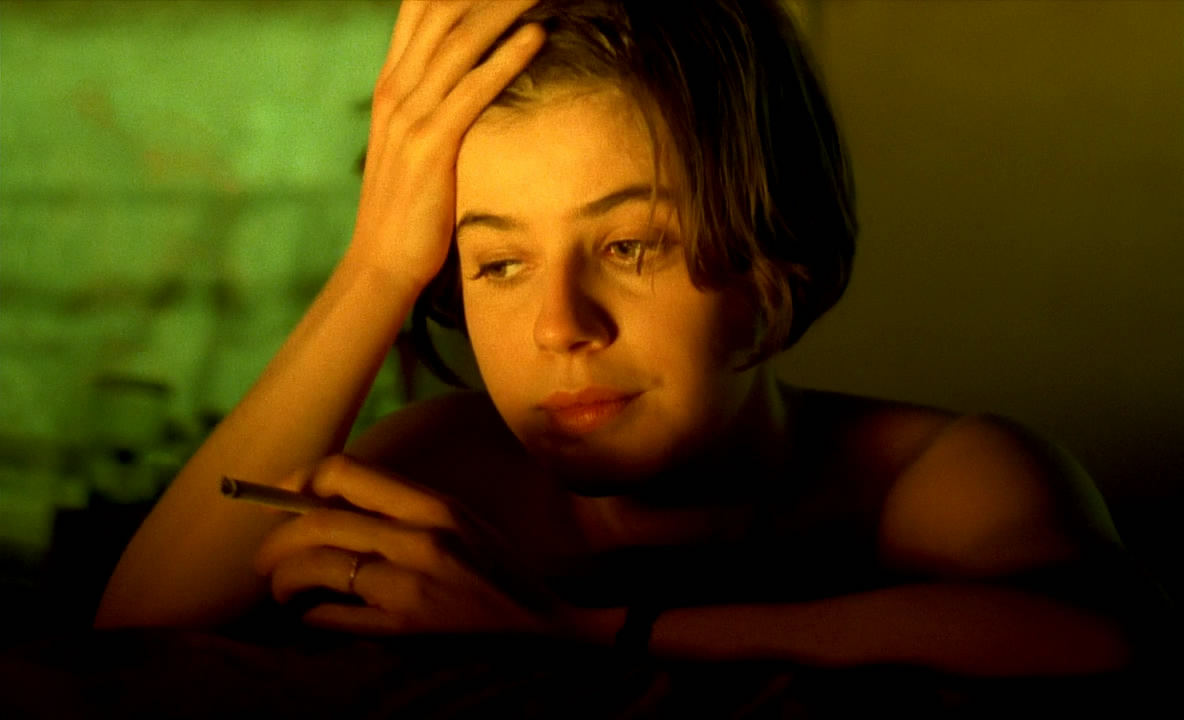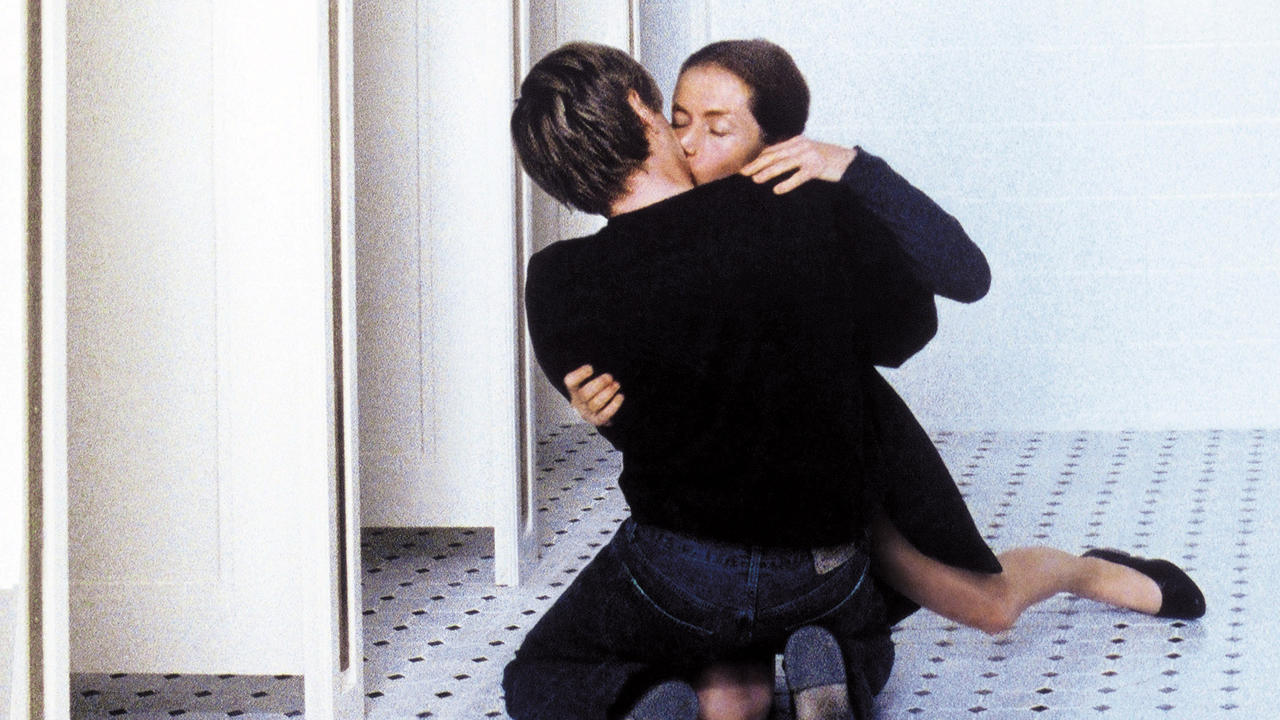7. William Hurt – The Kiss of the Spider Woman

An endearing, intelligent, soulful actor with a devilishly brilliant voice is what the instant image that pops in into our heads entails whenever William Hurt is brought up in a conversation. His work in the Kasdan masterpieces “The Big Chill” and “Body Heat” still hold up, and his enigmatic performance in Marcon Leary’s “The Accidental Tourist” is an underrated stroke of genius.
But at the top of that inimitable filmography lies Hector Babenco’s “The Kiss of the Spider Woman”, a ravishingly dark mood piece based on Manuel Puig’s play of the same name, that details the conversations between two cellmates in an Argentinian prison and the bond they form as a consequence thereof.
A sensitive, lyrical Hurt plays Molina who is imprisoned for having physical relations with an underage boy, and who talks about imaginary worlds and politically incorrect romantic movies, in an effort to break the defense of his inmate. Hurt’s gorgeous vitality transforms the text into immaculately layered other-worldliness, and the physicality of his moving performance touches every beat of the story with an unfettered tenderness.
6. Katharine Hepburn – Long Day’s Journey into Night

Not much needs to be said in reference to someone who is quite possibly the greatest film actress of all time. Katharine Hepburn has a vast array of spectacular performances to her credit, winning four Academy Awards for Best Actress. But one of her most potent, game-changing work was in Sidney Lumet’s word-to-word adaptation of Eugene O’Neill’s legendary play.
Hepburn plays Mary Tyrone the mother of a family in which all members are dealing with addiction; the men to alcohol and she to morphine. Their catastrophic conversations form the narrative of the film, set mostly indoors and largely without much cinematic flair that nonetheless manages to rise to level of great film dramas, thanks to its brilliant performances.
Hepburn’s unabashed boldness lends Mary a rousing discontent that just lights up the screen. She moves in a carefully crafted, almost surgical manner and pronounces everything with a zest of epic proportions. In the hands of lesser actors, this would come off as shamefully over-the-top, but with Hepburn it is essentially unforgettable.
5. Jean-Louis Trintignant – Z

Known to most contemporary audiences as the actor who played Emmanuel Riva’s husband in Michael Haneke’s “Amour”, Jean-Louis Trintignant has had a lush, richly colored career that began way back in the 50s. He has been a consistent force in the French film industry, and although now focused on theatre, does do an occasional film as well.
In Costa-Gavras’s daring political thriller “Z”, Trintignant plays the examining magistrate who investigates the death of a pacifist Deputy, which is being dusted off by the authorities as an accident. The film is a fictional rendering of the events that led up to and followed the assassination of Greek politician Grigoris Lambrakis.
Trintignant’s incisive, piercingly sharp performance matches the film in its tone and energy in some places and in others, slows it down for the audience to contemplate the film’s less conspicuous indictment of the Greek government of the time. The exacting, precise achievement fits the film’s focused pace like a glove, reverberating with honesty and enviable intellect.
4. Irène Jacob – The Double Life of Veronique

Quite possibly Krzysztof Kieślowski’s finest accomplishment outside of the “Three Colors” trilogy and the mammoth wonder that is “Dekalog”, “The Double Life of Veronique” is a melodic, almost rudimentary achievement, that has one of the most generous and effective uses of color, and the best shade is actress Irène Jacob.
Playing the dual role of a Polish choir soprano and a French music teacher, Jacob assists Kieślowski in exploring the full potential of ambiguity in the most universal of themes. Her heartbreakingly limitless performance never lets anything feel manufactured or out of place, disappearing into Kieślowski’s vision like a serene slice of scenery, while never losing the mystique of the film’s ambitions.
3. Per Oscarsson – Sult

A masterpiece of social realism, “Sult” is highly affecting film. Its breathtaking imagery and visuals define the harshness of the time it is set in and revolves around an impoverished writer called Pontus who always seems to run away from any signs of financial support. He then has hallucinations as he strives to survive without food and the hunger begins to take a toll on his body.
The sheer frailty and starkness with which actor Per Oscarsson plays Pontus warrants much more credit than it usually afforded. “Sult” relies almost entirely on his ominous, dizzying performance, and he not for once fails the film, turning in an alarming, discomforting, judicious portrayal of an aimless man with no evident destiny.
2. David Thewlis – Naked

An unlikely Mike Leigh, “Naked” derives all of its vibrating power from David Thewlis’s hyper-active, incredibly dense performance. Playing an intellectual and conspiracy theorist/ wanderer Johnny Fletcher, he imbues the film with cryptic sadness and liveliness that has become iconic among cinephiles since the film’s release.
Thewlis is unforgivingly riveting in the film, every poetic outburst underlined with a desperation that never seems to leave your head. He stretches his instincts to fully exploit Leigh’s famous improvisational style to a seductive effect that to this day never ceases to amaze and entrance.
1. Isabelle Huppert – The Piano Teacher

One of the few actresses to win the Cannes Best Actress prize twice, Isabelle Huppert is arguably the world’s greatest actress. The range of roles she has played over her nearly four-decade-long career is hard for any contemporary actress to match in the foreseeable future. From her prickly and courageous heroines to the most fallible female characters in cinema history, everything she has ever done contains not a single false note.
In Michael Haneke’s unnerving “The Piano Teacher” she plays Erika Kohut, a teacher at a piano Academy who has sadomasochistic fetishes and all her sexual preferences seemed to be confined to various forms of paraphilia. A dark, stone-cold look into what lies behind the façade of France’s upper class, “The Piano Teacher” would easily find itself among any film critic’s list of the most disturbing films ever made.
As fearless as ever, Huppert’s mind-numbing ability to inject a perceivable humanity into Cohut’s perversions and eventual undoing is a testament to her unparalleled talent. You can feel Erika’s conflicted soul stirring behind those exquisitely fierce eyes, with fear, despondency, coldness and unanalyzable repression made shatteringly felt in just one look.
Author Bio: Anmol Titoria is a student at University and has been writing and engaging in many a parley about film since he was in school, where he was responsible for writing the film column of the monthly newsletter. He professes his love for Kubrick, Bergman and Tarkovsky in ways so multifarious and with such alarming regularity that his family has considered throwing him out repeatedly.